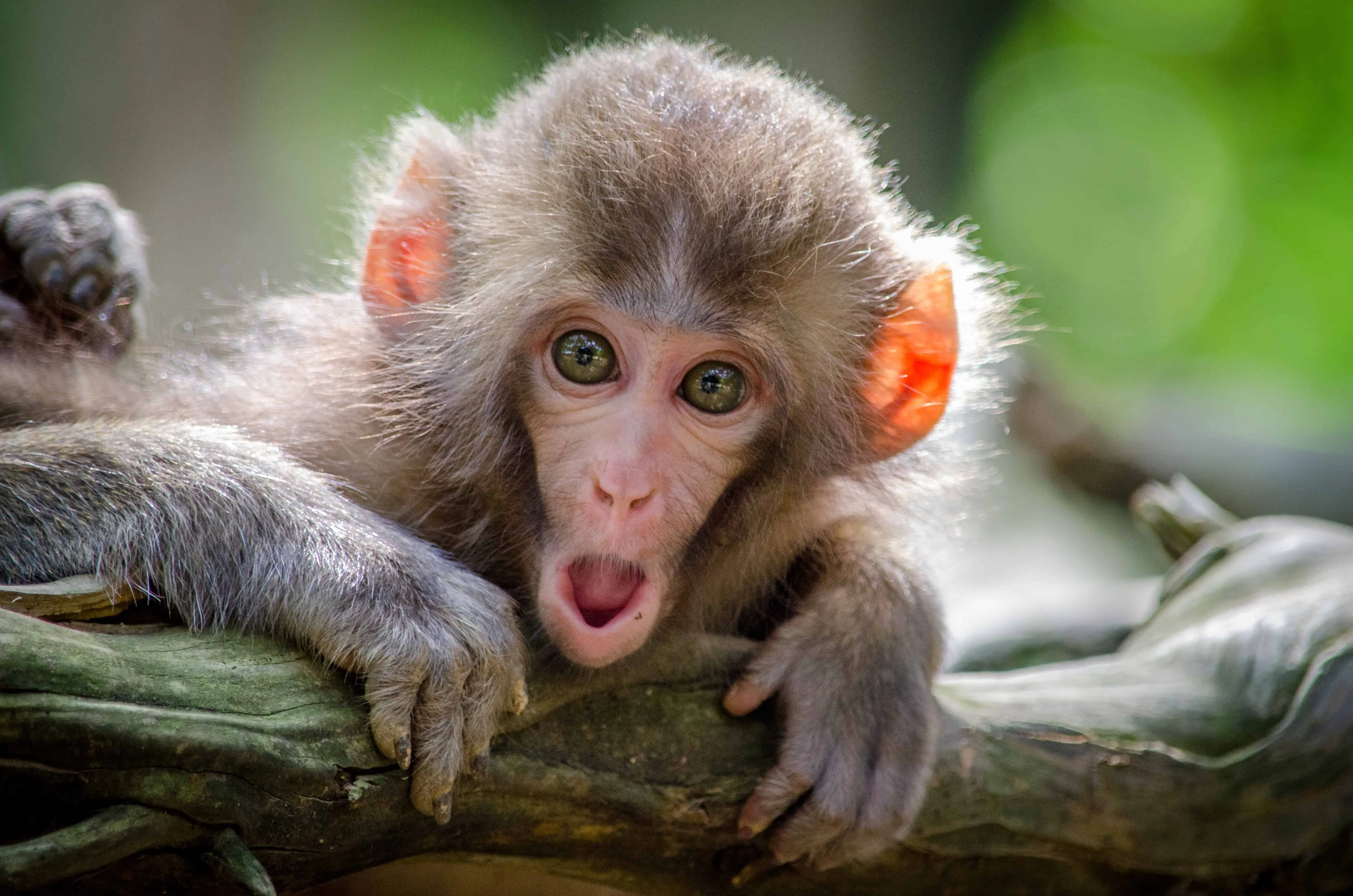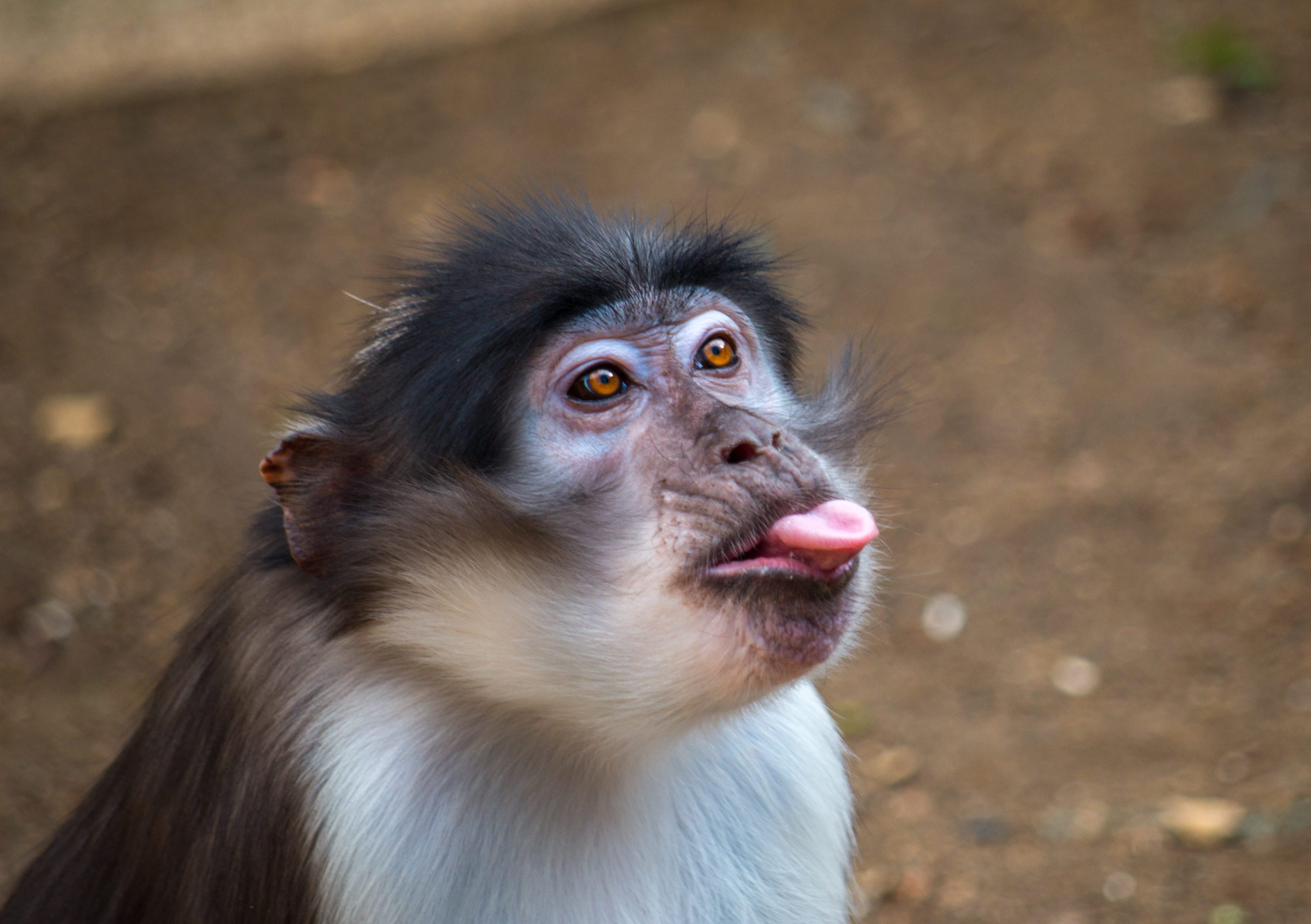Monkey Dog Compatibility: Exploring The Realities Of Unlikely Friendships
Have you ever stopped to wonder about some truly unusual animal pairings? Perhaps you have seen a video online, or just thought about how different creatures might get along. It's a natural curiosity, you know, to think about animals from very different backgrounds sharing a space.
People often imagine surprising friendships between animals, like a lion cub and a small dog, or a bird riding on a cat. These images can be quite charming, and they spark a lot of questions about how animal behavior really works. It makes you think about what makes any two creatures able to live side-by-side, so.
This article will look closely at monkey dog compatibility, a topic that brings up a lot of interesting points. We will talk about what makes these two animal types so different, what it might mean for them to share a home, and some very important things to consider if you are thinking about such a unique situation. We will also touch on some common questions people have about this kind of pairing, and what the real-world facts are, apparently.
Table of Contents
- The Idea of Monkey Dog Compatibility
- Behavioral Differences: A Big Picture View
- Safety First: Protecting Both Animals
- The Legal and Ethical Sides
- Steps for Considering Cohabitation (If Permitted)
- Training and Socialization: A Long Road
- Common Questions About Monkey Dog Compatibility
- Final Thoughts on Monkey Dog Compatibility
The Idea of Monkey Dog Compatibility
The idea of monkey dog compatibility can bring up all sorts of images for people. Some might think of cartoon duos, or maybe even those internet videos showing very unusual animal pairings. It is a thought that makes you pause, isn't it? We often hear about dogs and cats learning to live together, but a monkey and a dog is a whole different ballgame, really.
Different Kinds of "Monkey"
When we talk about "monkey," the word itself can mean a few things to different people. For some, it might bring to mind characters from games, like a "robo monkey" or an "upgrade monkey" that helps you in a strategy game. Others might think of the social app that connects people, a place for finding friends, basically. But for our discussion about monkey dog compatibility, we are talking about actual living primates, the kind that swing through trees and eat bananas, so.
There are many kinds of real monkeys, each with their own unique behaviors and needs. Some are small and timid, while others are larger and more assertive. This wide range of primate types means that even if you consider a monkey, you would need to think about what kind it is, and how that might affect its ability to live with a dog, you know.
Why We Wonder About Unusual Pairs
People are naturally curious about how different creatures interact. We see stories of unlikely animal friendships pop up on social media, and they tend to grab our attention. It is a heartwarming thought, to see two very different animals forming a bond, or so it seems. This curiosity often leads us to wonder about pairings like monkey dog compatibility, and whether such a thing is even possible, in a way.
Our interest in these unusual animal relationships probably comes from a deeper wish to see harmony in the natural world. We like to think that all creatures can get along, despite their differences. This human desire for connection and peace often extends to the animal kingdom, and that is why questions about monkey dog compatibility come up, sometimes.
Behavioral Differences: A Big Picture View
When you consider monkey dog compatibility, it is important to look at the very basic ways these two animal groups behave. Dogs and monkeys come from entirely different evolutionary paths, and this means their instincts and social structures are quite distinct. Understanding these differences is pretty important for anyone thinking about such a pairing, you know.
Primate Personalities
Monkeys are primates, and they have complex social structures and very high intelligence. They can be quite playful and curious, but they also have strong territorial instincts. Many monkey species live in groups, and they have clear hierarchies, or so it seems. They communicate using a wide range of sounds, body language, and facial expressions, too.
A monkey's behavior can also be unpredictable, especially as they get older. They might seem cute and manageable when they are young, but adult monkeys can become aggressive or destructive if their needs are not met. They require constant mental stimulation and a very specific diet, which is a big commitment, really. Their natural behaviors, like biting, scratching, and throwing things, are just part of who they are, as a matter of fact.
Canine Characteristics
Dogs, on the other hand, are domesticated animals, bred over thousands of years to live with humans. They are pack animals by nature, and they thrive on social interaction with their human families and other dogs. Dogs typically communicate through barks, growls, whimpers, and a lot of body language, like tail wags and ear positions, so.
Most dogs aim to please their human companions, and they often look to their owners for guidance. They are generally loyal and adaptable, making them wonderful pets for many homes. However, different dog breeds have different instincts, like a strong prey drive in some hunting breeds, which could be a concern with smaller animals, obviously.
Communication Styles
The ways monkeys and dogs communicate are very, very different. A dog might wag its tail to show happiness, but a monkey might see that as a sign of aggression or a challenge. A monkey's bared teeth might mean fear or a warning, while a dog's bared teeth usually mean it is ready to defend itself. These mixed signals can cause a lot of confusion and stress for both animals, to be honest.
Imagine a dog trying to play by nudging a monkey, or a monkey trying to groom a dog in a way that feels threatening to the dog. These natural behaviors, which are perfectly fine within their own species, can lead to misunderstandings and even conflict when put together. It is pretty much like two people speaking entirely different languages and expecting to have a deep conversation, you know.
Safety First: Protecting Both Animals
When considering monkey dog compatibility, safety has to be the absolute top concern. It is not just about whether they can tolerate each other; it is about making sure neither animal gets hurt, physically or emotionally. The risks involved are quite serious, so it is something to think about very carefully, you know.
Potential for Injury
Monkeys have strong jaws and sharp teeth, and they can deliver powerful bites. They also have very strong hands and sharp nails, which can scratch and grab. Dogs, especially larger breeds, also have powerful jaws and can cause significant injury with a bite. Even a playful nip from a dog could seriously harm a smaller monkey, apparently.
Beyond direct physical harm, there is also the risk of disease transmission. Monkeys can carry diseases that are harmful to dogs, and vice versa. Some diseases can even pass from monkeys to humans, which adds another layer of concern for the household. Keeping both animals healthy requires a lot of preventative care and vigilance, really.
Stress and Well-being
Even if no physical injury happens, the constant stress of living with a very different species can take a toll on an animal's well-being. A monkey might feel threatened by a dog's playful barking or sudden movements. A dog might feel anxious or confused by a monkey's unpredictable actions or loud vocalizations, you see.
This ongoing stress can lead to behavioral problems in both animals, like aggression, withdrawal, or even health issues. Animals need a calm and predictable environment to thrive, and forcing an unnatural pairing can disrupt that peace significantly. It is pretty much like living with someone who always speaks a different language and acts in ways you just do not understand, so.
The Legal and Ethical Sides
Before even thinking about monkey dog compatibility, there are some really important legal and ethical questions to consider. Owning a monkey is not like owning a dog; it comes with a whole different set of rules and responsibilities. These are things you just have to look into, honestly.
Owning Monkeys: Are They Even Legal?
In many places around the world, it is actually against the law to own a monkey as a pet. Laws vary a lot from one country to another, and even from state to state or city to city. Some places ban them completely, while others might allow certain species with very strict permits and conditions. It is not something you can just assume is okay, you know.
Breaking these laws can lead to big fines, confiscation of the animal, and even jail time. So, before anything else, anyone considering a monkey would need to thoroughly check the local regulations. It is a very serious matter, and ignorance of the law is not an excuse, obviously.
Ethical Considerations of Exotic Pets
Beyond the legal aspects, there are huge ethical questions surrounding the ownership of exotic animals like monkeys. Monkeys have very specific needs that are incredibly hard to meet in a typical home environment. They need large enclosures, specialized diets, and complex social interactions with other monkeys, usually.
Taking a monkey from its natural habitat or breeding it for the pet trade often causes a lot of suffering for the animal. Many exotic pets end up neglected or abandoned because their owners cannot meet their needs. Is it truly fair to the monkey to put it in a situation where its natural instincts and social needs cannot be fulfilled? That is a question we all should ask, as a matter of fact. A lot of people on communities, like those talking about "monkeyhategate," sometimes touch on the psychology of how animals are treated, and it is pretty clear that proper care is a huge part of it.
Steps for Considering Cohabitation (If Permitted)
If, by some chance, it is legal to own a monkey where you live and you still feel compelled to consider monkey dog compatibility, there are very specific, careful steps you would need to take. This is not a casual decision, and it requires a lot of planning and professional help, pretty much.
Expert Guidance is Key
You would need to consult with animal behaviorists who specialize in primates and veterinarians with experience in exotic animals. These professionals can give you honest advice about the risks and whether such a

Monkeys | Nature | PBS

80 Cheeky Monkey Facts You Should Know | Facts.net

How Many Types of Monkeys Are There in the World? | Reader's Digest